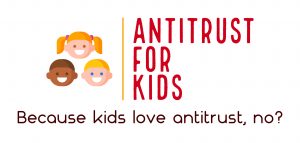Authors: Steven Cernak and Luis Blanquez
As we explained in a prior post, the new draft merger Guidelines issued recently by the FTC and DOJ cite to several older court opinions that might not be familiar to antitrust practitioners who have been focused for decades exclusively on earlier versions of the Guidelines. Below, we cover two more of such newly “classic cases:” Philadelphia National Bank and its presumptions about market shares and competition and Pabst, which the new Guidelines cite for its language on trends in concentration.
Philadelphia National Bank (PNB)
The New Guidelines mention PNB seven times to basically highlight the Supreme Court’s position that possible economies from a merger cannot be used as a defense to illegality. And they do so by including a footnote with the well-known cite from the same case: “Congress was aware that some mergers which lessen competition may also result in economies, but it struck the balance in favor of protecting competition.”
The Guidelines fully develop this argument in Guideline 1. This Guideline first explains that concentration refers to the number and relative size of rivals competing to offer a product or service to a group of customers. It further states that when a merger between competitors significantly increases concentration and results in a highly concentrated market, the Agencies presume that a merger may substantially lessen competition based on market structure alone.
The entire text of the Guideline is grounded on the PNB case and what Assistant Attorney General Jonathan Kanter mentioned in June 2023 during his speech at the Brookings Institution’s Center on Regulation and Markets Event “Promoting Competition in Banking”
In that case, in 1961 the DOJ challenged the merger of the second and third largest commercial banks in metropolitan Philadelphia. The district court allowed the merger that would have created a bank with 30 percent of the relevant market, raising the two-firm concentration ratio from 44 percent to 59 percent. The Supreme court reversed the case and established the precedent that certain mergers are so clearly likely to lessen competition that they must be prohibited in the absence of clear evidence to the contrary:
[A] merger which produces a firm controlling an undue percentage share of the relevant market, and results in a significant increase in the concentration of firms in that market is so inherently likely to lessen competition substantially that it must be enjoined in the absence of evidence clearly showing that the merger is not likely to have such anticompetitive effects. 374 U.S. at 363
In other words, without attempting to specify the smallest market share that would still be considered to threaten undue concentration, the Supreme Court confirmed that a post-merger market share of 30 percent or higher unquestionably gave rise to the presumption of illegality. Later on, in General Dynamics––a case we will discuss in our next article––the Court approved a merger with market shares above 30% because “other pertinent factors” indicated the merger would not substantially lessen competition. (The New Guidelines do not discuss that aspect of General Dynancs, despite mentioning the case in the same footnote.)
That’s why for the last 40 years the Government has been making its prima facie case by simply showing 30 percent of the market is involved in the merger, abandoned that 30 percent presumption, focusing instead on competitive effects and other relevant factors that might affect them, such as the structure of the market and potential entry.
As former Commissioner Joshua D Wright and Judge Douglas Ginsburg wrote in Philadelphia National Bank: Bad Economics, Bad Law, Good Riddance:
The problem for today’s courts in applying this semicentenary standard is that the field of industrial organization has long since moved beyond the structural presumption upon which the standard is based. The point is not that 30 percent is an outdated threshold above which to presume adverse effects upon competition; rather, it is that market structure is an inappropriate starting point for the analysis of likely competitive effects. Market structure and competitive effects are not systematically correlated. Nor does the rebuttable nature of the 30 percent presumption reduce it to a mere annoyance, an exercise the clutters up litigation but is soon enough dispatched by the defendant’s showing; the practical effect of beginning the analysis of a merger with an essentially irrelevant presumption is to shift the burden of proof from the plaintiff, where it rightfully resides, to the defendant, as though the law prohibited all mergers except those that could be proved acceptable by their proponents.
The article describes all the flaws about this outdated structural presumption. Despite those flaws, PNB has never been officially overruled and these New Guidelines might just give it new life, at least until the courts get involved.
Pabst
The new Guidelines cite U.S. v. Pabst three times, all in connection with the new Guideline that the effect of a merger “may be substantially to lessen competition” if it “contributes to a trend toward concentration.” The 1966 case reversed a lower court and found that evidence of the probable anticompetitive effect of the merger of Pabst and its brewery competitor Blatz in 1958 was sufficient to find a Section 7 violation.
The key issue was whether the DOJ had done enough to show one or more of these geographic markets: the entire United States; the three-state area of Wisconsin, Illinois, and Michigan; or just Wisconsin. Writing for the Court, Justice Black found that the evidence of “the steady trend toward concentration in the beer industry” was sufficient for a violation, no matter how the geographic market was defined.
 The Antitrust Attorney Blog
The Antitrust Attorney Blog












